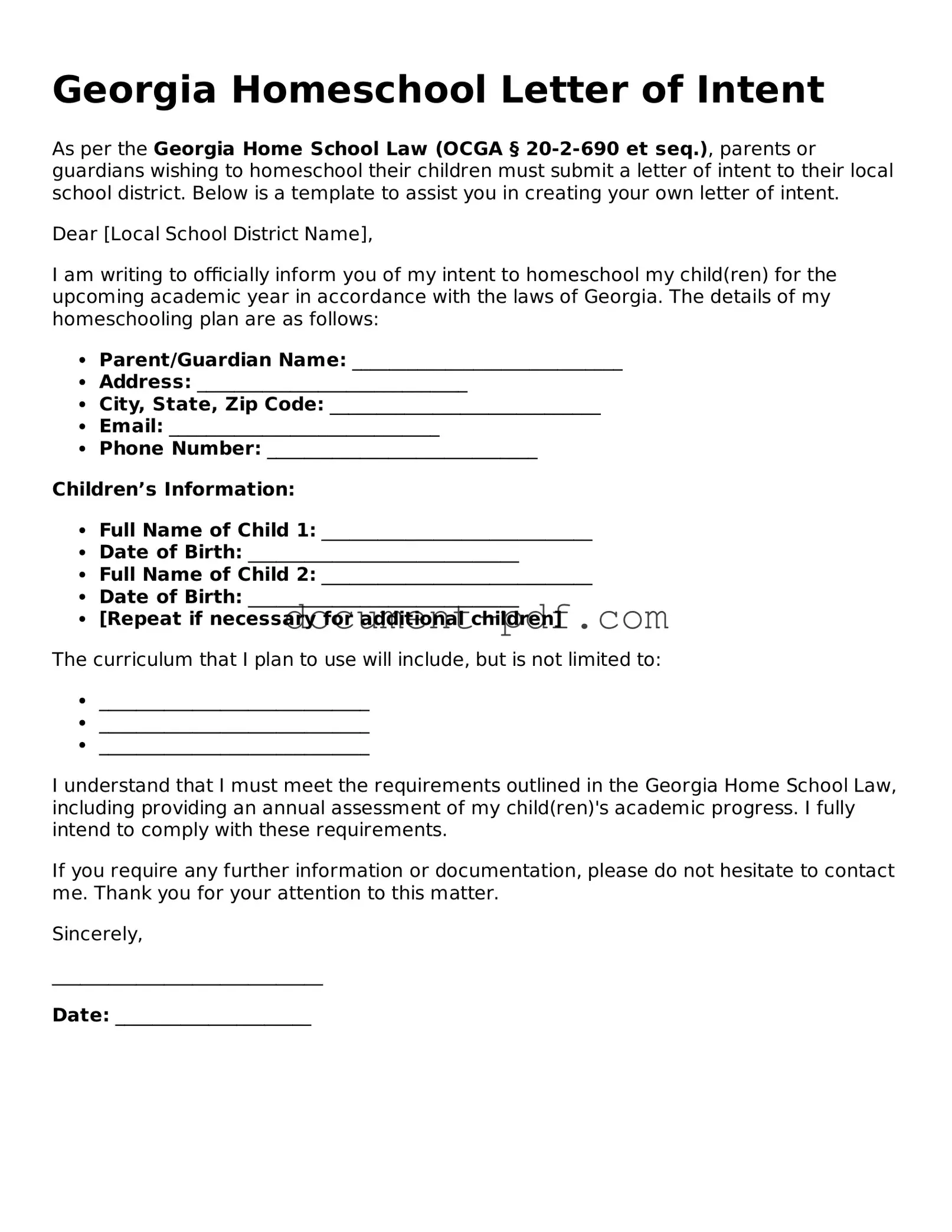The Georgia Homeschool Letter of Intent form shares similarities with the Affidavit of Intent to Homeschool, commonly used in various states. Both documents serve as formal notifications to the local school district that a parent or guardian intends to educate their child at home. The Affidavit typically requires the parent to affirm their commitment to provide an educational program that meets state standards, paralleling the intent expressed in Georgia's Letter of Intent.
Another document that bears resemblance is the Notice of Intent to Homeschool, which is utilized in many jurisdictions. This notice acts as a declaration to the educational authorities, indicating that a child will not be enrolled in a traditional school setting. Like the Georgia form, it often requires basic information about the child and the educational plans, ensuring that the authorities are informed of the family's choice to homeschool.
The Individualized Education Plan (IEP) is another relevant document, especially for families of children with special needs. While the IEP is more detailed and specific to a child's educational requirements, both documents emphasize the importance of tailored educational approaches. The IEP outlines specific goals and services, whereas the Letter of Intent signifies the parent's commitment to provide an education that suits their child's needs.
In addition, the Homeschool Curriculum Plan can be compared to the Georgia Homeschool Letter of Intent. This document outlines the educational curriculum that will be used throughout the homeschooling year. Both documents reflect the parent's educational philosophy and approach, ensuring that the child receives a structured and comprehensive learning experience.
The Enrollment Withdrawal Form is another document that shares a connection with the Georgia Homeschool Letter of Intent. When a family decides to withdraw a child from a public or private school to homeschool, they often need to submit this form. This withdrawal process is a formal acknowledgment of the change in educational setting, similar to how the Letter of Intent formally announces the decision to homeschool.
Understanding the various state-specific forms is essential for prospective homeschooling families, as these documents play a vital role in ensuring compliance with the law and outlining parental responsibilities. For those looking to establish a solid legal foundation in their homeschooling journey, a Last Will and Testament is also a crucial document that should not be overlooked. This legal instrument guarantees that a person's wishes regarding their assets and responsibilities are honored after their passing, providing peace of mind for both the individual and their loved ones. To learn more about drafting this important form, visit https://pdfdocshub.com/ and secure your legacy today.
The Home Education Program Registration form is also similar in nature. This form is often required by states to officially register a homeschooling program. Like the Georgia Letter of Intent, it includes essential information about the child and the educational approach being taken. Both documents aim to keep educational authorities informed about homeschooling families.
Lastly, the Annual Progress Report is a document that complements the Georgia Homeschool Letter of Intent. This report is typically submitted at the end of the academic year to demonstrate the child's educational progress. While the Letter of Intent signifies the start of the homeschooling journey, the Annual Progress Report provides a formal account of the child's achievements, ensuring that educational standards are being met.

